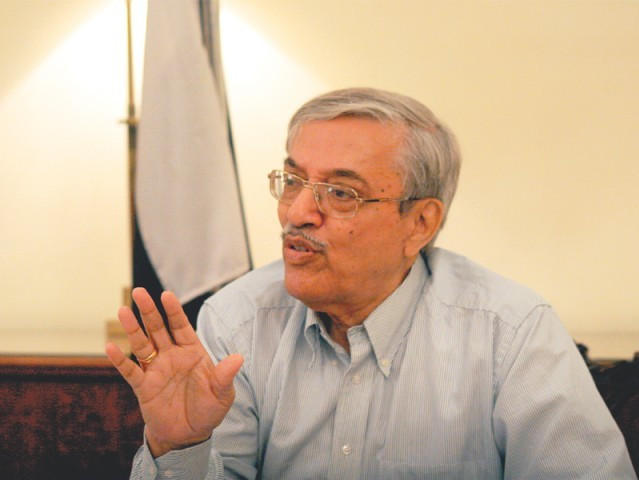SHC issues contempt notice to Sindh Zakat Council chairperson
Justice (retd) Zahid Alvi defied orders to utilise zakat for higher education of the poor

Justice (retd) Zahid Alvi defied orders to utilise zakat for higher education of the poor.
A two-judge bench, comprising Justice Salahuddin Panhwar and Justice Fahim Ahmed Siddiqi, issued the contempt notice on Thursday to Justice (retd) Zahid Qurban Alvi for his defiance in implementing an earlier order of the court.
"Prima facie, this is a case of contempt. Accordingly, issue contempt notices against the chairperson of the Sindh Zakat Council and its members who attended [the] last meeting," reads the order.
SHC directs Nawabshah commissioner to ensure no civil servant works as journalist
In December 2016, the SHC ordered the council to pay for higher education expenses of poor students from the zakat fund. "Since the government is providing free education up to intermediate level but from [the] university level, the students are liable to pay fee ... some of the Zakat amount should be allocated to all public sector universities as well as degree colleges on proportionate basis," the court had ordered last year.
The vice-chancellors were also directed to constitute committees to collaborate with the council and include the option of zakat-funded education in the admission policy.
However, the court expressed dismay that Alvi 'turned down' a summary in this regard which was prepared on the court's order at the 19th meeting of the council, which he had chaired. The council was of the view that the SHC judgment was almost non-implementable as the system of zakat has nothing to do with higher education which is mostly a choice of a student," the meeting stated.
Problems in education: SHC CJ takes notice of poor condition of schools
"The order of the Sindh High Court is not legal. The court has no jurisdiction of suo motu into the matter. There [will be an] opening of flood gates if we agree [with the order]," the council chairperson further stated.
On Thursday, the bench refuted the chairperson's assertion, pointing out that Section 8 of the Sindh Zakat and Ushr Act, 2011, has a provision for higher education. The provision states that the zakat fund shall be utilised for "assistance to the needy, the indigent and the poor particularly orphans and widows, the handicapped and the [differently-abled], eligible to receive zakat under shariah for their subsistence or rehabilitation, either directly or indirectly through deeni madrassas [seminaries] or educational, vocational or social institutions, public hospitals, charitable and other institution providing healthcare".
The SHC bench observed that the chairperson was not competent to declare the SHC's order illegal. The judges also clarified that judgment was not given in a suo motu case but on a petition filed by a student.
Inquiry ordered into lack of facilities at schools in four districts
The SHC had also ordered the council to launch its website and to regularly upload complete details of the zakat utilisation. However, that order, too, was not complied with, the judges observed. The court was informed that the council received Rs400 million under the head of stipends for education from the federal government in six years from 2011 to 2016.
However, only Rs230 million from that sum was utilised while the remaining Rs170 million funds lapsed. The bench observed that a council's official, Kashif Siddiqi, admitted not only that the said amount which was meant to be utilised for zakat lapsed but also that no record existed of the money that was utilised.
"…there is apparent gross negligence and irregularity [in distribution of] zakat. Accordingly, we refer this matter to the NAB Sindh director-general to probe into the issue and funds received by the Sindh Zakat Council from the federal pool and distribution thereof from 2012," the judges ordered.



















COMMENTS
Comments are moderated and generally will be posted if they are on-topic and not abusive.
For more information, please see our Comments FAQ